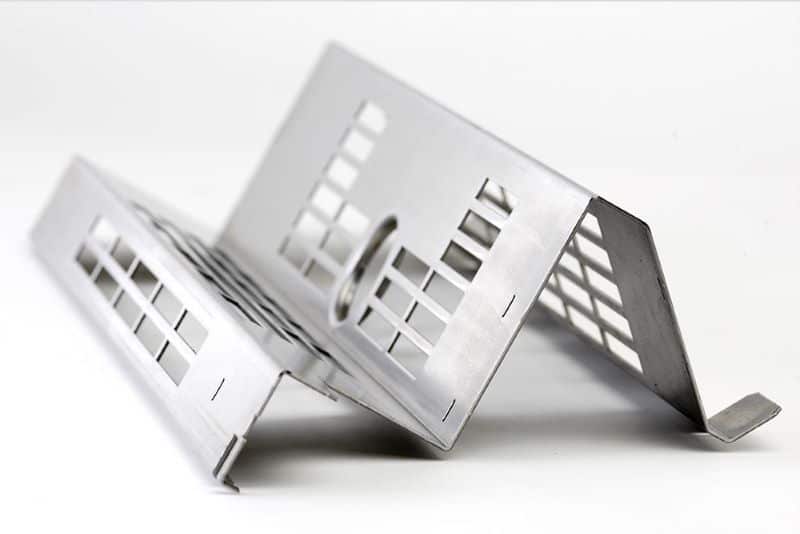Upon close examination of the bends we find that the sheet metal stretches on the outer surface and that the inside surface seems to shrink.
Rules of bending sheet metal in a u.
Minimum sheet metal bending radius.
It shall be equal to three times of sheet thickness plus bend radius.
There is no particular rule for how much the material should be weakened but as a rule of.
As shown in the figure below the sheet metal bending height is too low and the sheet metal is easily deformed and twisted when bent which makes it difficult to obtain the ideal part shape and ideal dimensional accuracy.
When slotting sheet metal at the bend axis the material s average density in the bend region is decreased.
Minimum sheet metal bend radius depends on the selection of tool and the process.
For bent sheet metal variation in the raw material thickness increases the recommended precision to 0 010 in.
If you re bending 0 020 thick material use a 0 020 radius.
In other words if you re bending 1 8 sheet use a tool with a 1 8 radius to form the inside of the bend.
There is a die and a punch this time they are both u shaped resulting in a similar bend.
The more complex version of this where a fabricator takes unique blueprints and converts them in parts components and prototypes is called custom metal fabrication.
The sheet metal design rule of thumb in this case is.
Basic rules in creating sheet metal parts the process of making parts from sheet metal through bending cutting or stamping is called sheet metal fabrication.
If your sheet metal is long ask a friend to stabilize the part hanging out from the form blocks so it doesn t affect the bend.
Anisotropy of the sheet metal is an important factor in bending.
The sheet metal bending height should be at least 2 times the thickness of the sheet metal plus the bending radius that is h 2t r.
This is a very straightforward way for bending steel u channels for example but not so common as such profiles can also be produced using other more flexible methods.
The inside bend radius should be equal to the thickness of the material that you re forming.
A test to determine anisotropy is discussed in the sheet metal forming section.
U bending is in principle very similar to v bending.
Next put your wooden or metal form blocks in the vice and clamp your sheet of metal between the forms.
Layout method sheet metal stretches when it bends is an oversimplification.
The more ductile the sheet metal the smaller the inner bend radius is possible.
If the sheet is anisotropic the bending should be performed in the preferred direction.
A minimum bend radius of 0 indicates that the sheet can be folded over on itself.
To bend sheet metal in a vice start by marking a line on the metal where you want to bend it.




























